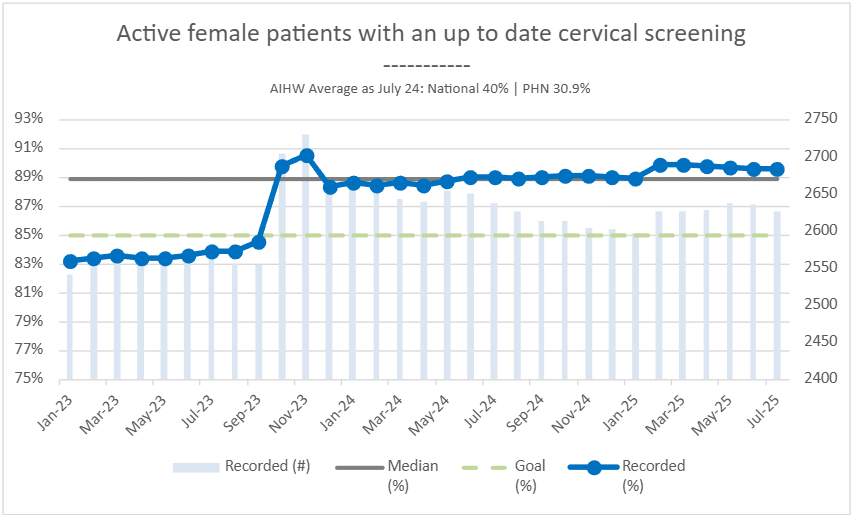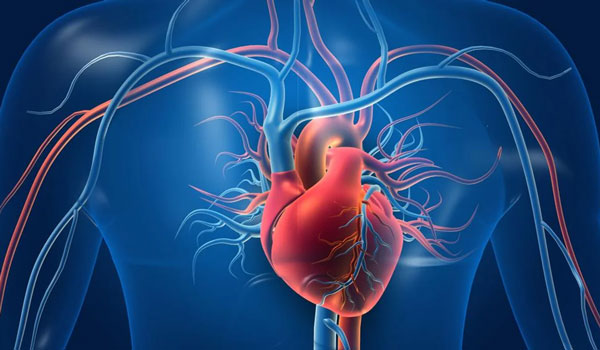Vaccines are as important to your overall health as diet and exercise. When you skip vaccines, you leave yourself vulnerable to illness.
Childhood Vaccinations
Childhood vaccinations are a crucial measure in preventing debilitating and potentially life-threatening infections. The Australian National Immunisation Schedule is the result of extensive research and public policy that is designed to make sure all children stay healthy and well. It is important to make sure that as many children as possible are up to date with their vaccinations in order to protect them, their families and their contacts.
We look at the number of children who are fully immunised. As can be seen from the chart on dashboard, the vast majority of children who attend our practice are fully vaccinated. Our practice has a strong focus on children’s health, and we would appreciate your help to maintain our high rates of completed schedules. If your child has had any vaccinations elsewhere, please inform us so we can update our records.
Influenza Vaccines
Although self limiting in many people, Influenza (the flu) can lead to serious health consequences in many patients including those living with diabetes, asthma, chronic airways disease (COPD), heart disease, young children and people 65 years old and over. Each year the Australian government runs national influenza immunisation campaigns that provide free vaccines to patients with these illnesses. We also run reminder campaigns and vaccine clinics so that we can help and encourage you to stay up to date with your vaccinations for influenza. We track our practice data on the percentage of patients with diabetes, COPD, and patients 65 years and over who have had influenza vaccine in the last 15 months. We know we can improve. Please help us keep your file up to date by letting us know if you have had the flu vaccine elsewhere, and by responding to the reminders that we send to you.
Pneumococcal Vaccines
Pneumococcal disease is caused by a bacteria called Streptococcus pneumoniae. It caused many illnesses, including middle ear infections and more serious disease such as pneumonia, meningitis, and invasive disease. Vaccination is an important prevention measure, and should be considered for children (as part of the childhood schedule), all people over the age of 70, and patients who have conditions that may predispose them to this disease such as chronic respiratory illness, heart failure, and diabetes.
We look at the percentage of patients in our practice over the age of 70 who have had the vaccine. Our target was to reach a goal of 60%., which we have done. However we want to continue to improve and we need your help! Please ask our team for information about this vaccine. Most people over the age of 70 only need one injection.
Quality Improvement at HFGP
Our Quality Improvement Strategy
Our StrategyOne of the fundamentals of quality and safety in healthcare is to embed a strategy for continuous quality improvement and to never stop trying to become better. As part of our service, accountability and commitment to you, we believe that we should continuously look to improve and build on [...]
QI Dashboard
This page displays a summary of the measures in our quality improvement efforts. Please refer to the specific sections for more detail. We prefer to use “run charts” to display this information, as it is the best way to display change over time and to best identify efforts that [...]
Prevention
Preventive medicine is the practice of promoting preventive health care to improve patient well-being. The goal is to ultimately prevent disease, disability, and death. Cervical Screening Cervical screening (previously known as PAP smears) is one of the most important preventative health measures women can undertake. [...]
Coronary Heart Disease (CHD)
People with heart disease require extra care to prevent more cardiac events, illness and death. Heart disease, and specifically ischaemic (or coronary artery) disease, is an important and common cause of death and disability in Australia. If you are known to have CHD, it [...]
Vaccinations
Vaccines are as important to your overall health as diet and exercise. When you skip vaccines, you leave yourself vulnerable to illness. Childhood Vaccinations Childhood vaccinations are a crucial measure in preventing debilitating and potentially life-threatening infections. The Australian National Immunisation Schedule is the result [...]
Managing Diabetes at HFGP
Diabetes care is complex, and there are many things we can measure that help us determine effectiveness of care. If you are living with diabetes, controlling your blood sugar is very important to prevent complications such as diabetic eye disease, diabetic kidney disease, and [...]







